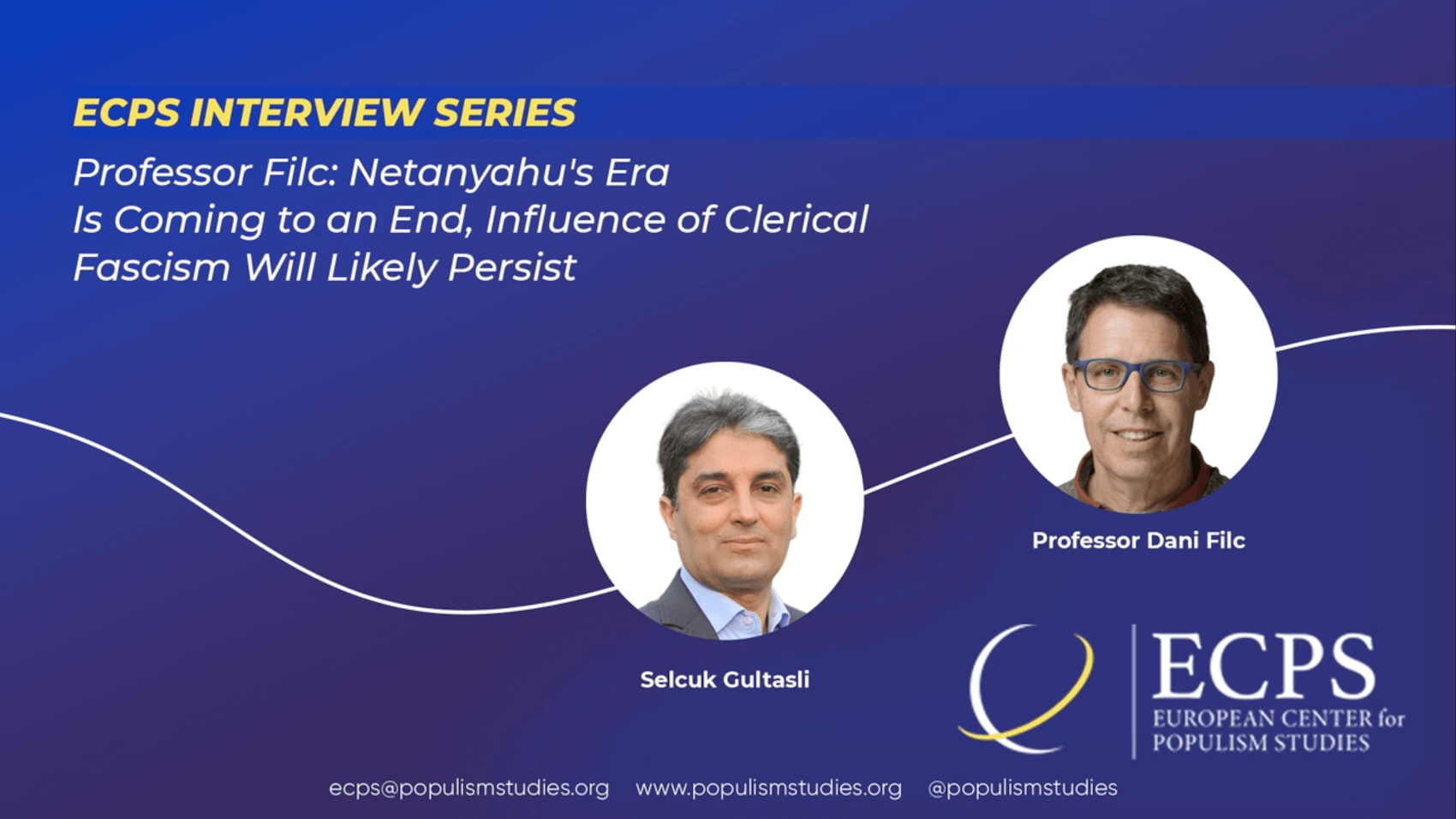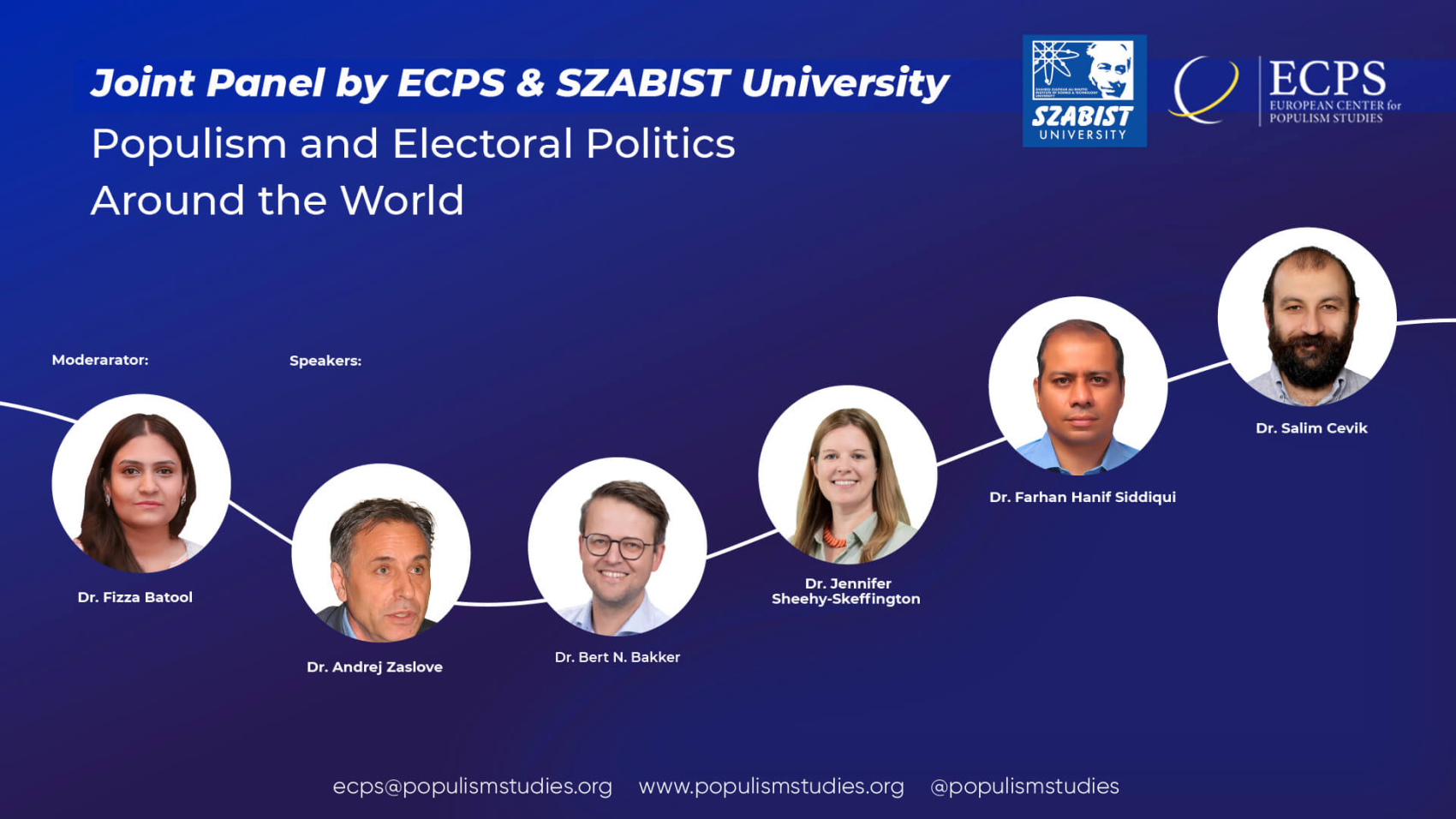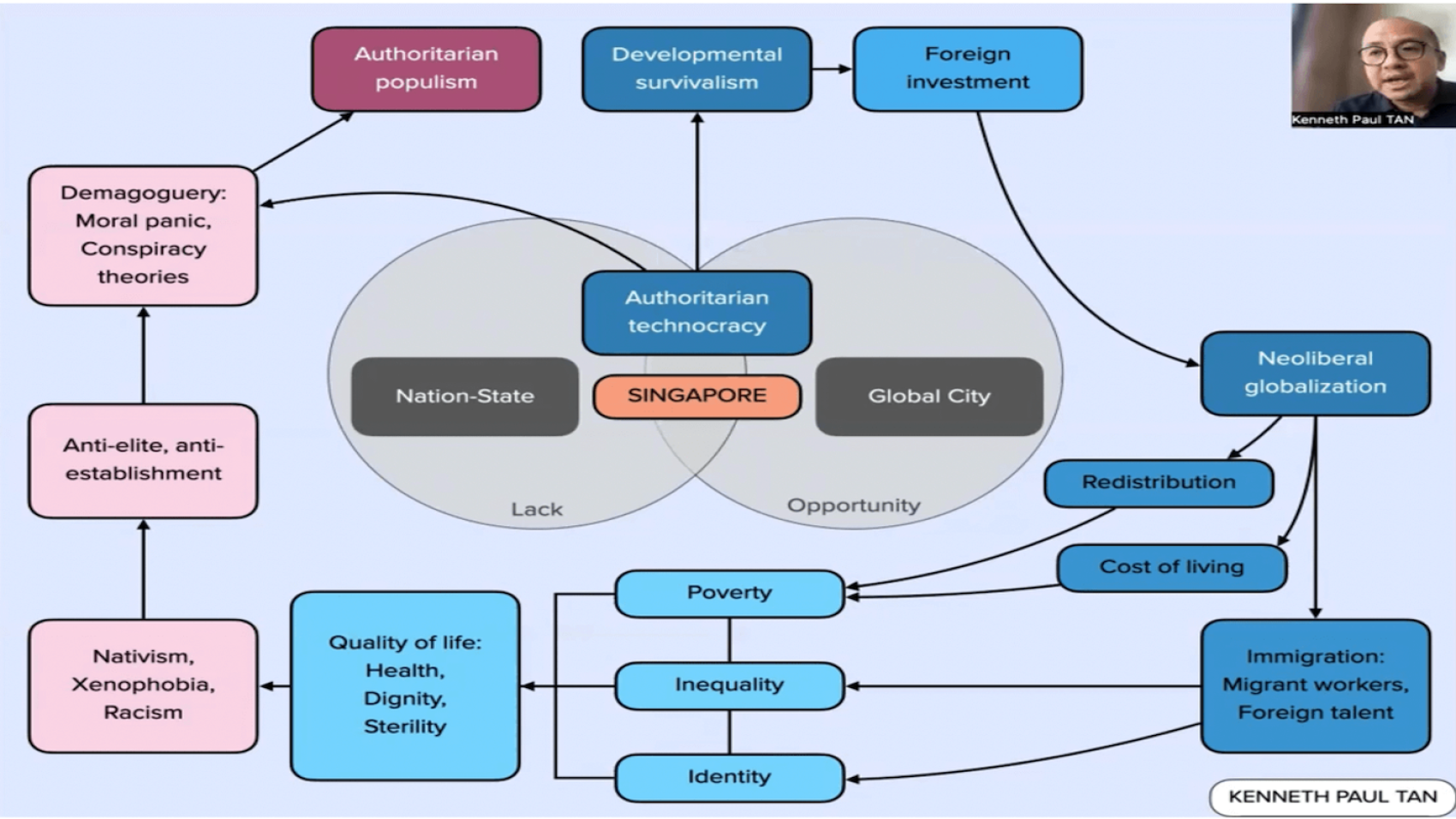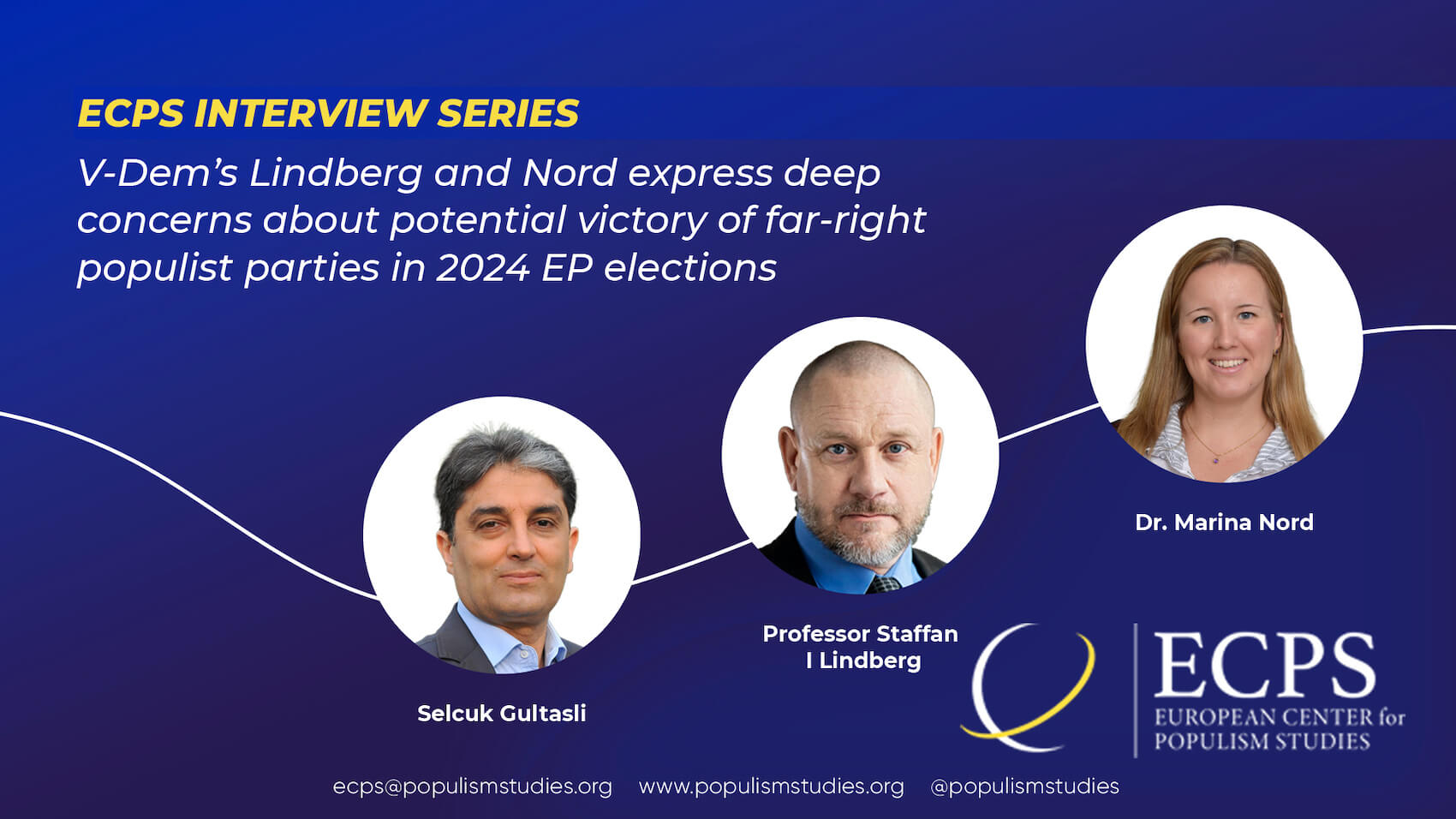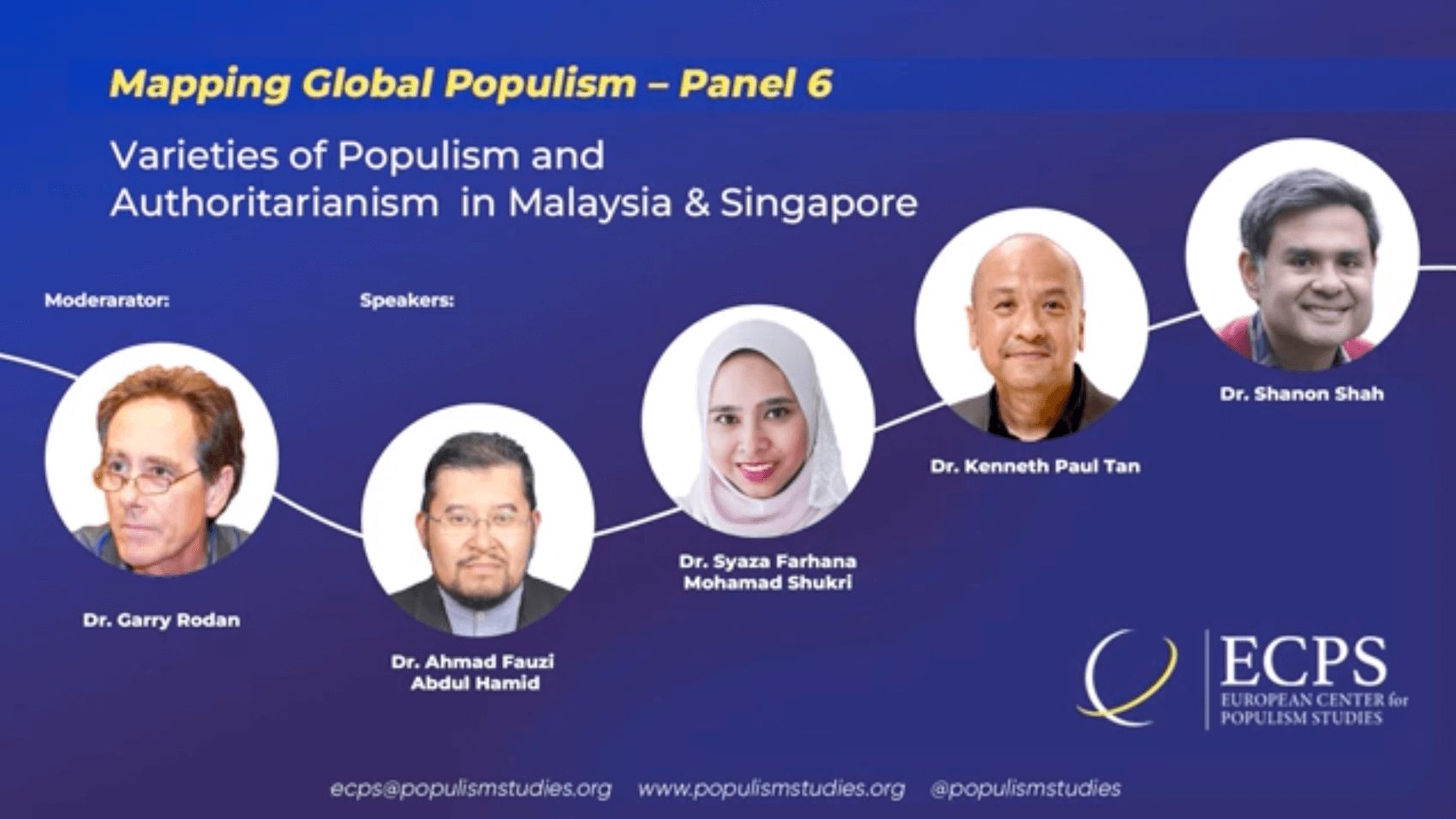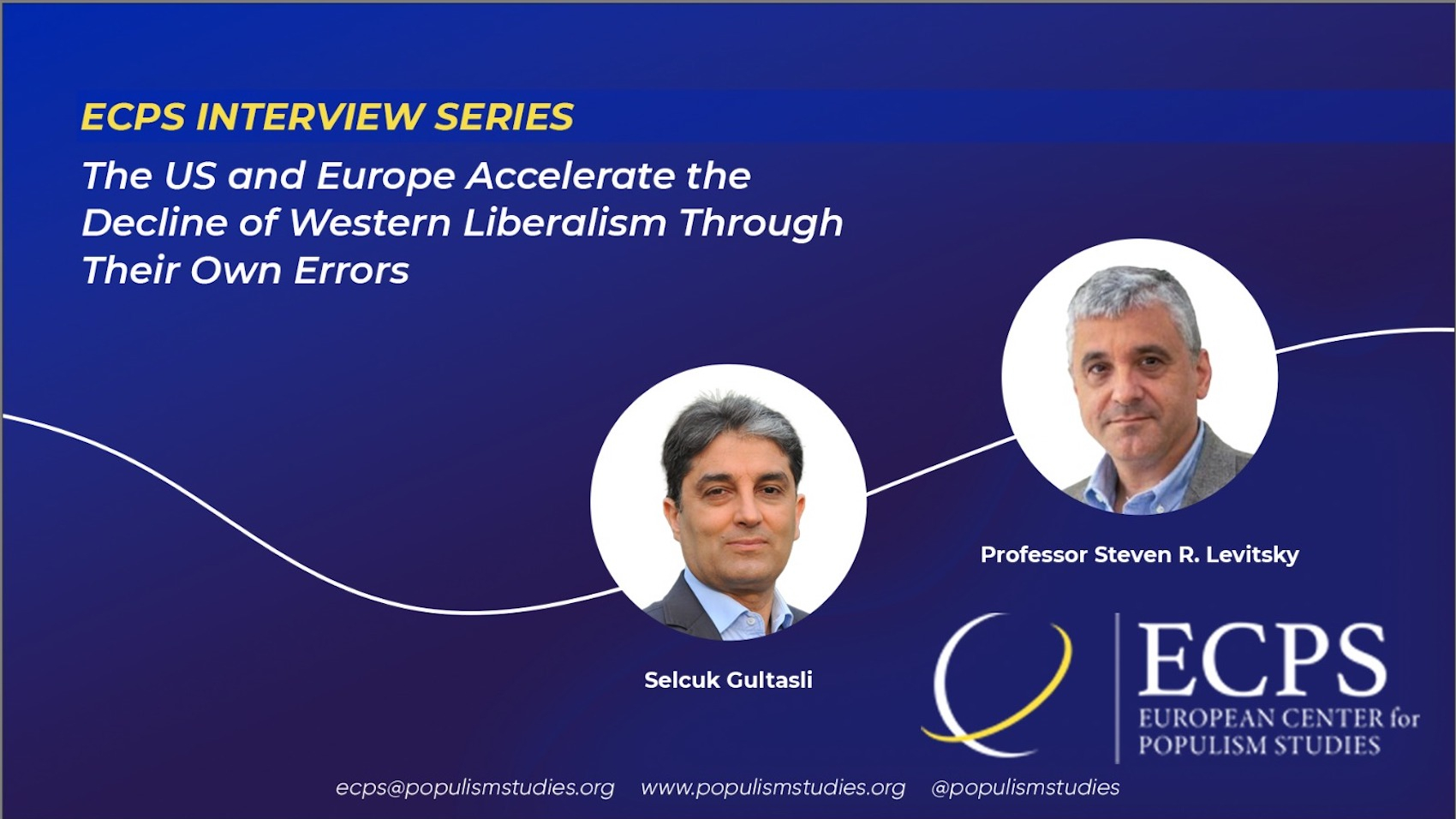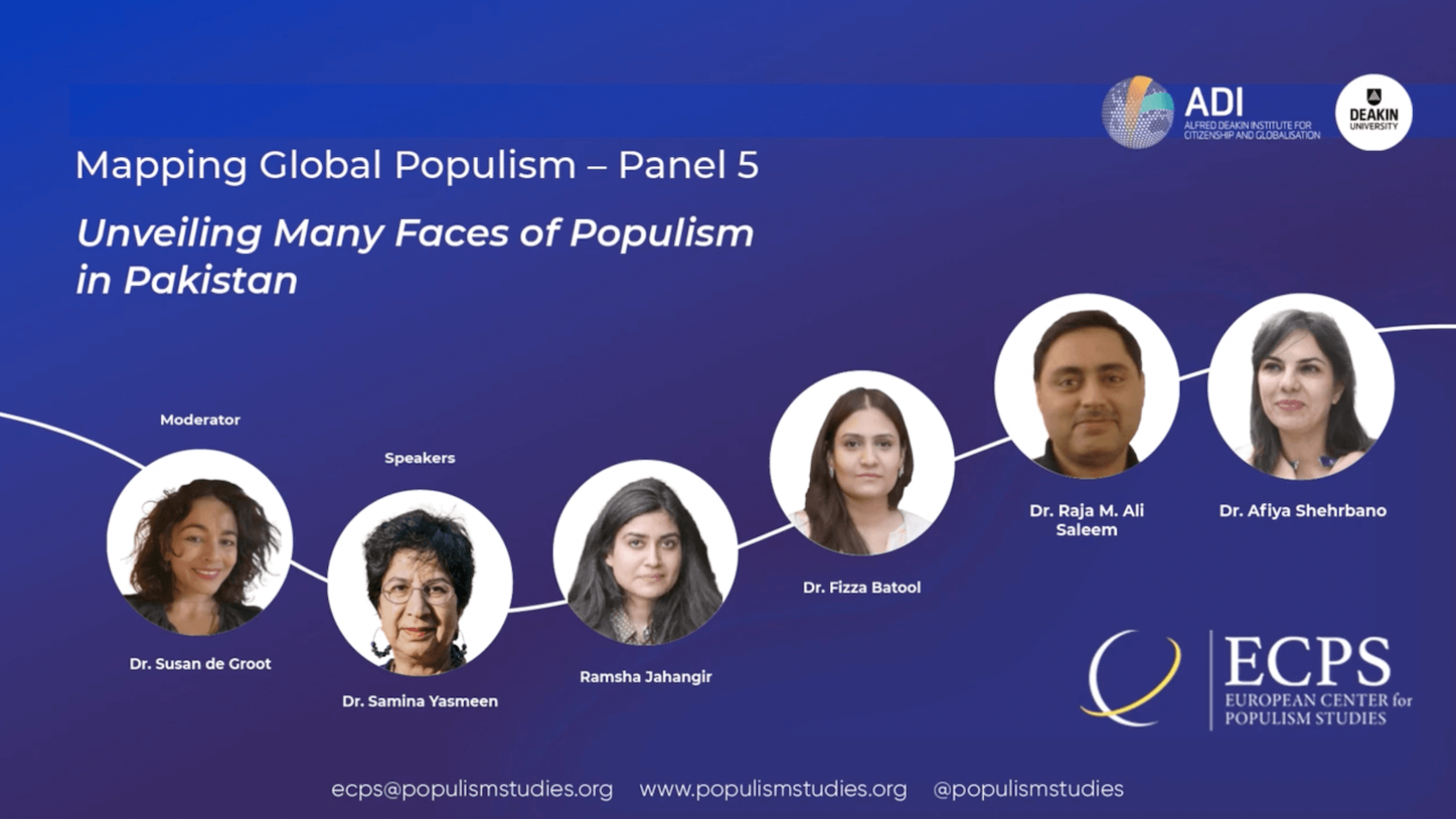Offering profound insights into the dynamics of Israeli politics and the evolving role of radical right-wing populism in the country, Professor Dani Filc of Ben Gurion University confidently asserts that the era of Benjamin Netanyahu is on the verge of conclusion. However, he also underscores that the influence of “clerical fascism” in Israel is poised to persist.
Interview by Selcuk Gultasli
In an exclusive interview with the European Center for Populism Studies (ECPS), Professor Dani Filc, a distinguished scholar in the Department of Politics and Government at Ben Gurion University in the Negev, confidently asserts that the era of Benjamin Netanyahu, a longstanding figure in Israeli politics, is on the verge of conclusion. However, he also underscores that the influence of clerical fascism is poised to persist.
Offering profound insights into the dynamics of Israeli politics and the evolving role of radical right-wing populism, the interview delves into the historical transformation of the ruling Likud. From its roots as a radical right vanguard to its current status as a sui generis form of right-wing populism, Likud’s evolution is explored. The discussion tracks Likud’s inclusive elements and examines the ideological shifts that occurred during Netanyahu’s tenure.
Addressing the intersection of populism with identity politics, Professor Filc highlights the dangerous chain of equivalencies used to demonize Israeli Arabs and the instrumental use of religion to differentiate the “in-group” and the “out-group.” Professor Filc also provides insights into Israel’s global alliances, pointing out the alliance with European far-right parties. Filc touches on the evolution of Likud under Netanyahu and its alignment with illiberal, right-wing populist movements in Europe.
Asserting that the ongoing war in Gaza signals the end of Netanyahu’s dominance in Israeli politics, Professor Filc predicts that “with the conclusion of the war in Gaza, Netanyahu will fall, leading to the abandonment of the judicial reform.” However, he expresses concerns about the lasting impact of the ongoing conflict on populist movements and calls for a just peace in the Middle East, highlighting potential dangers associated with civilizational populism or a clash of civilizations.
In this comprehensive interview, Professor Filc shares invaluable insights into the intricate landscape of Israeli politics, the evolution of populism, and the challenges posed by religious and right-wing populist movements in the country.

